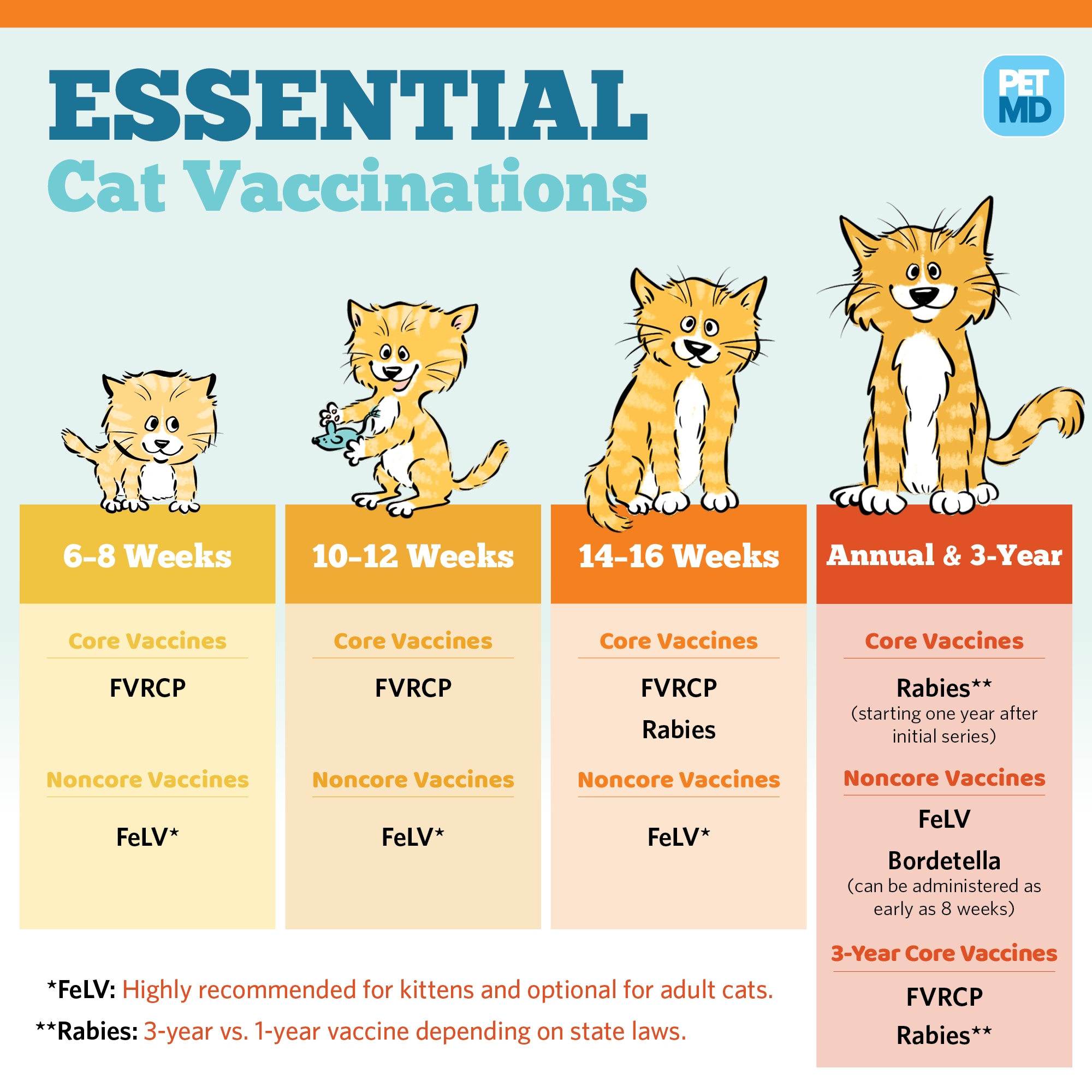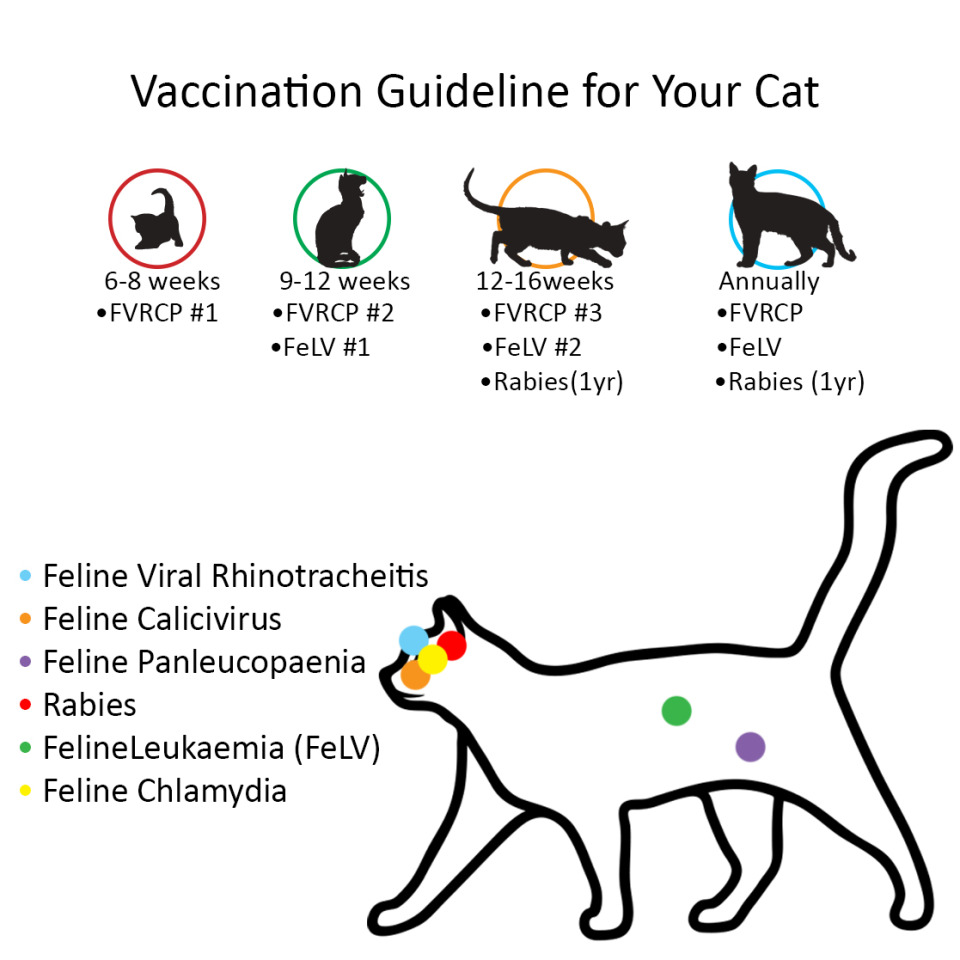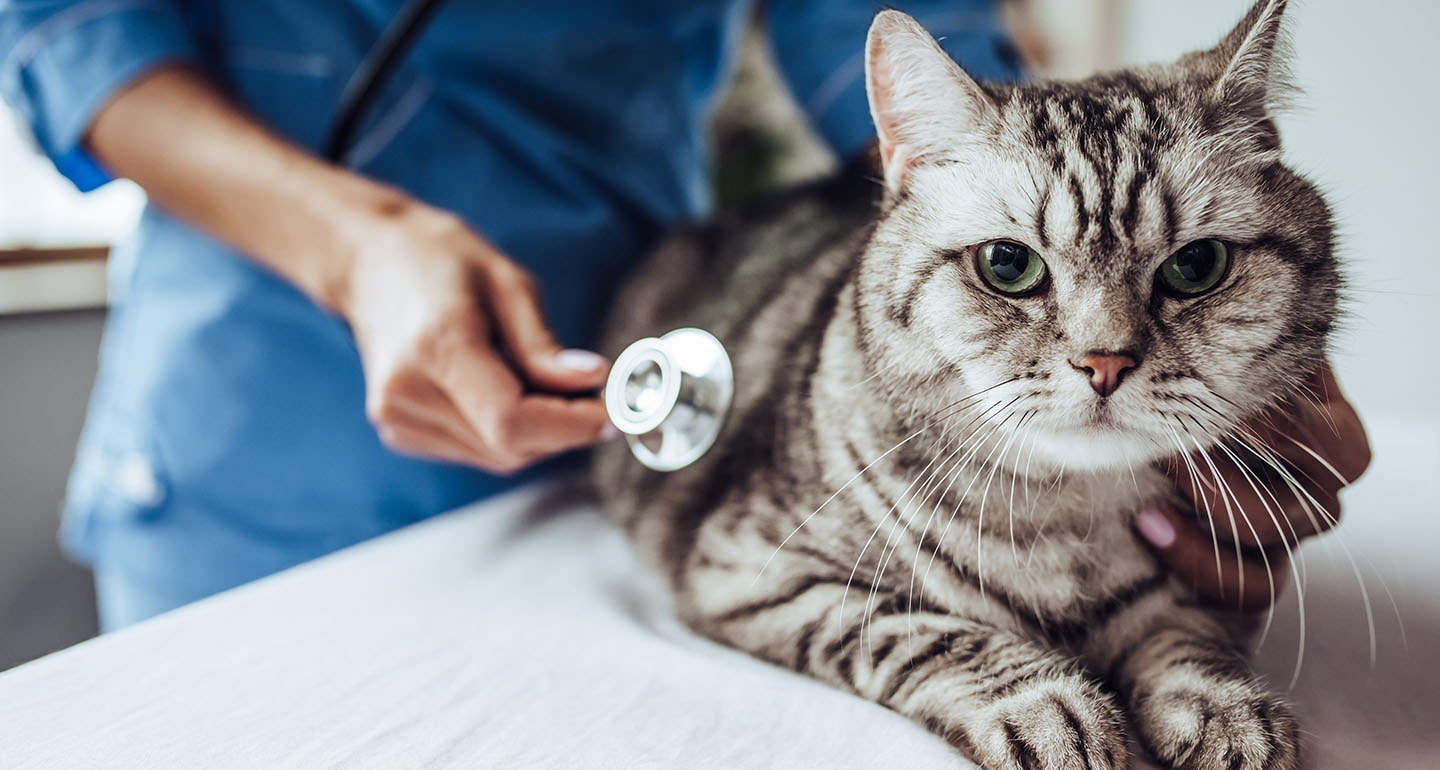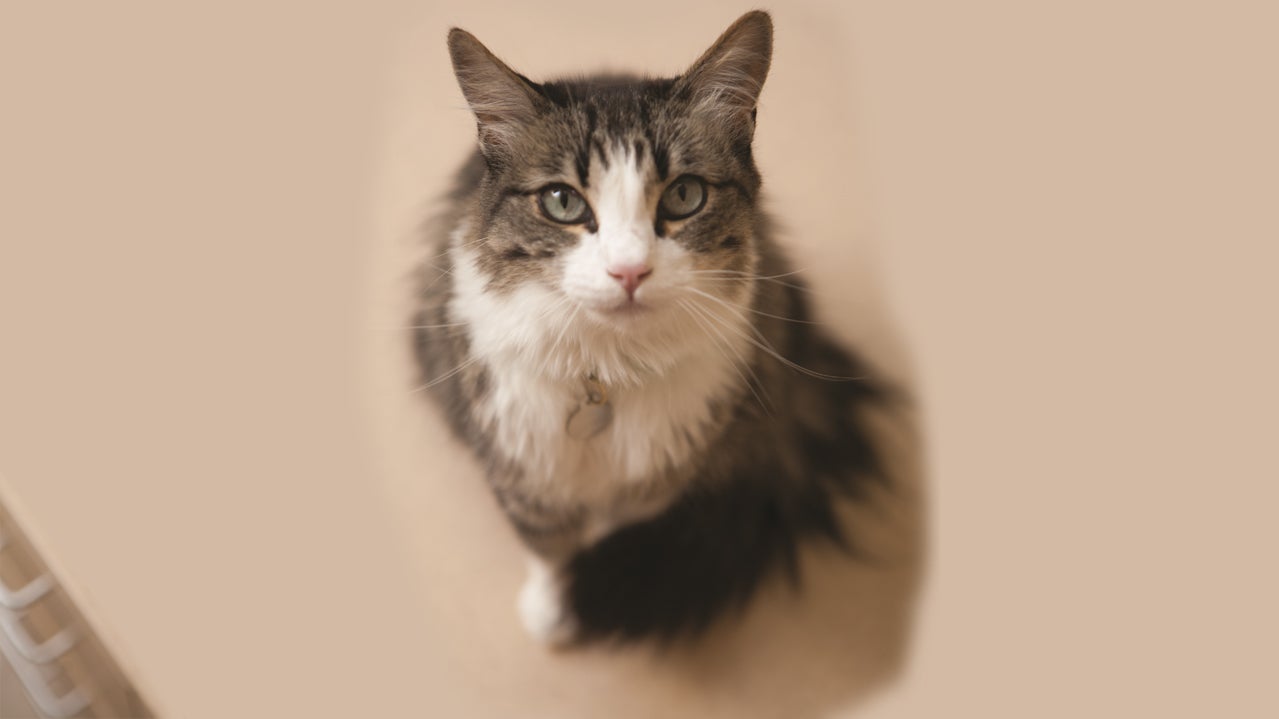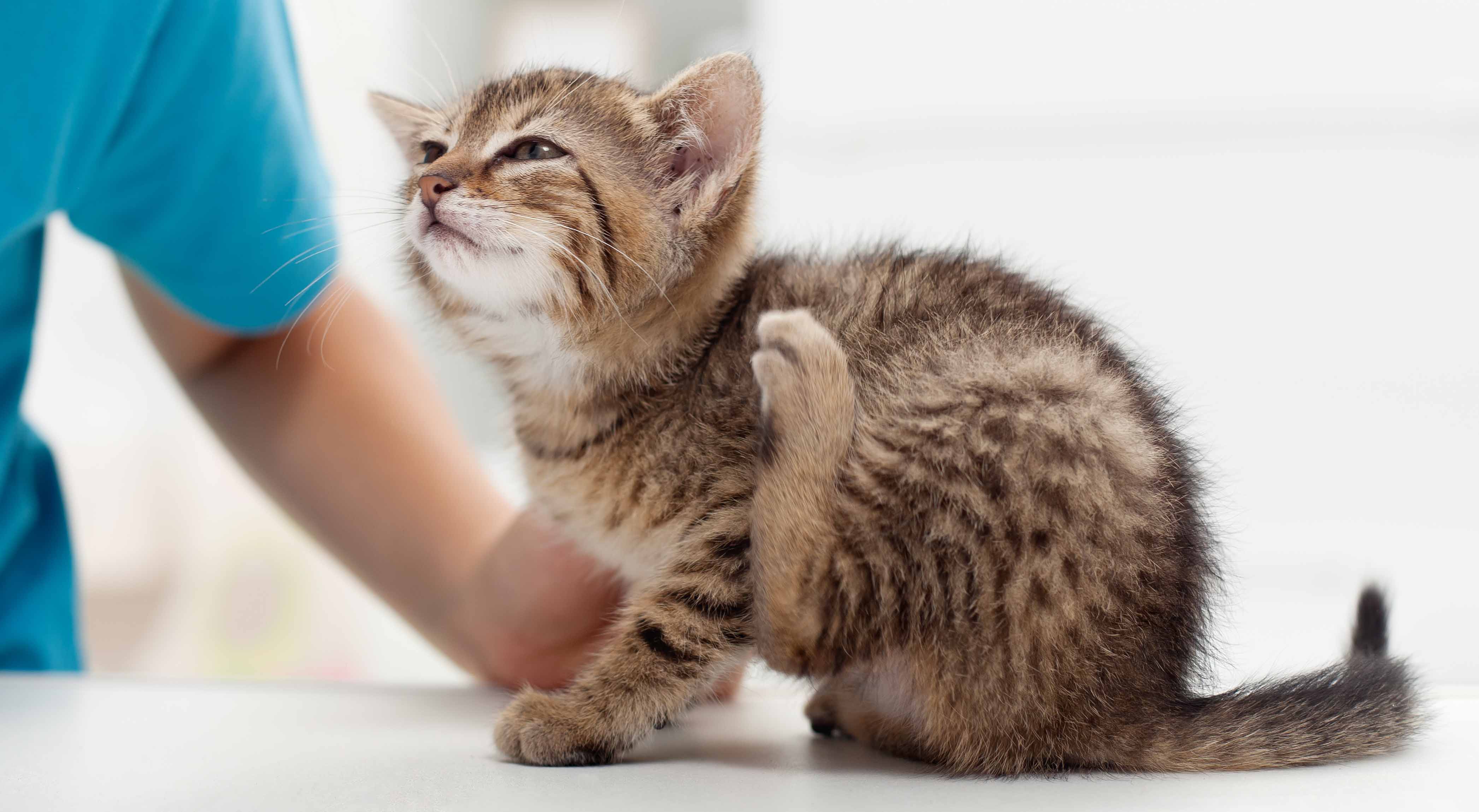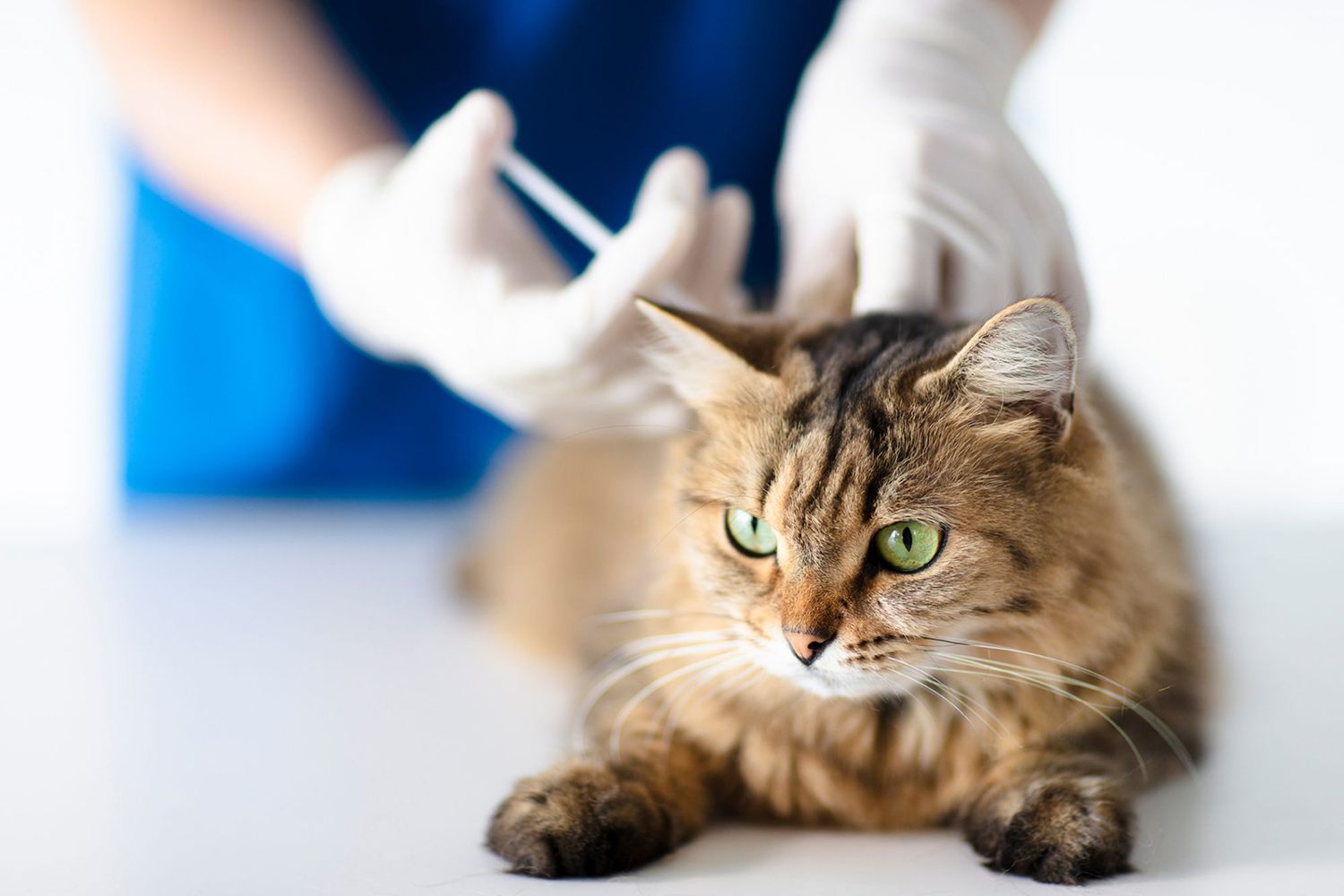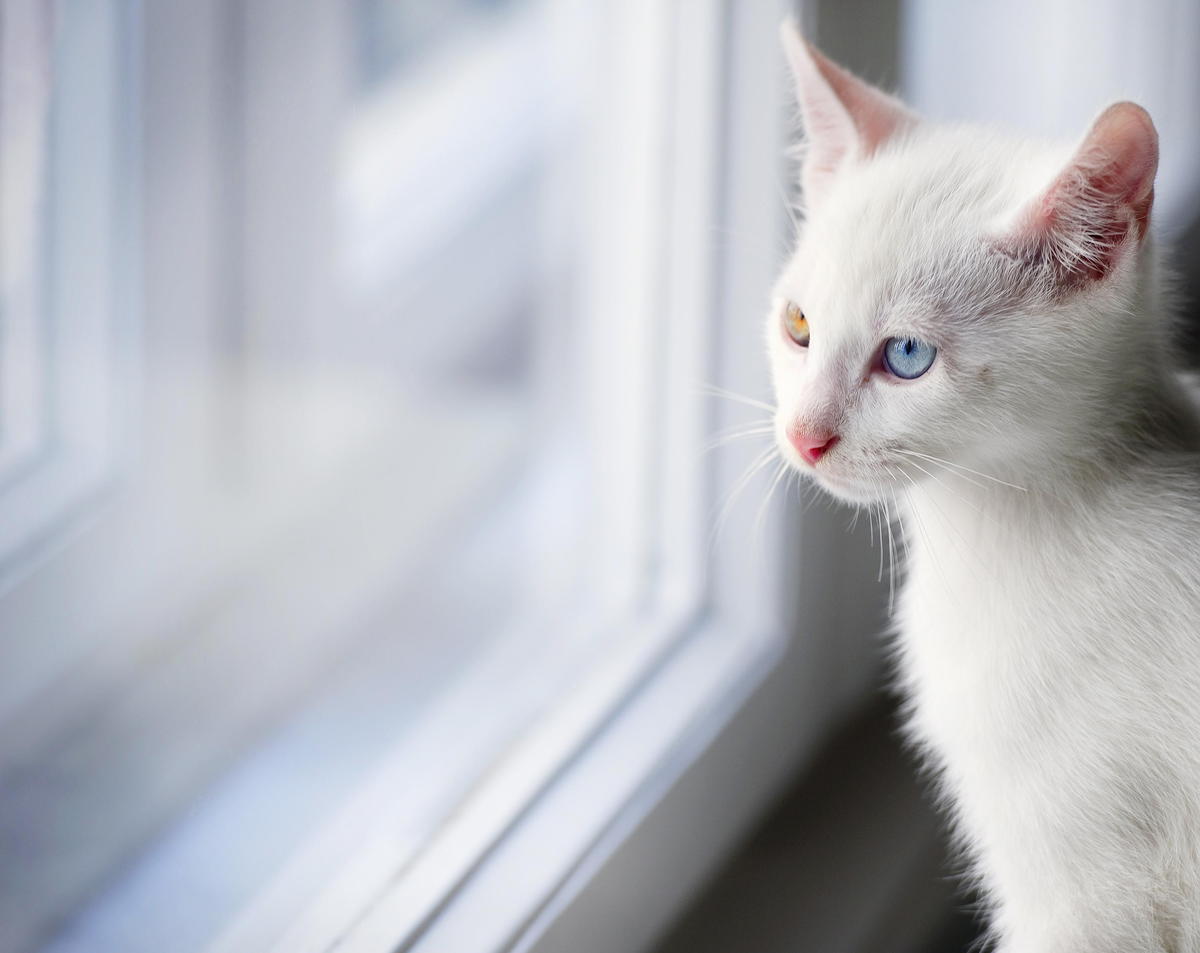Fvrcp Shots For Cats
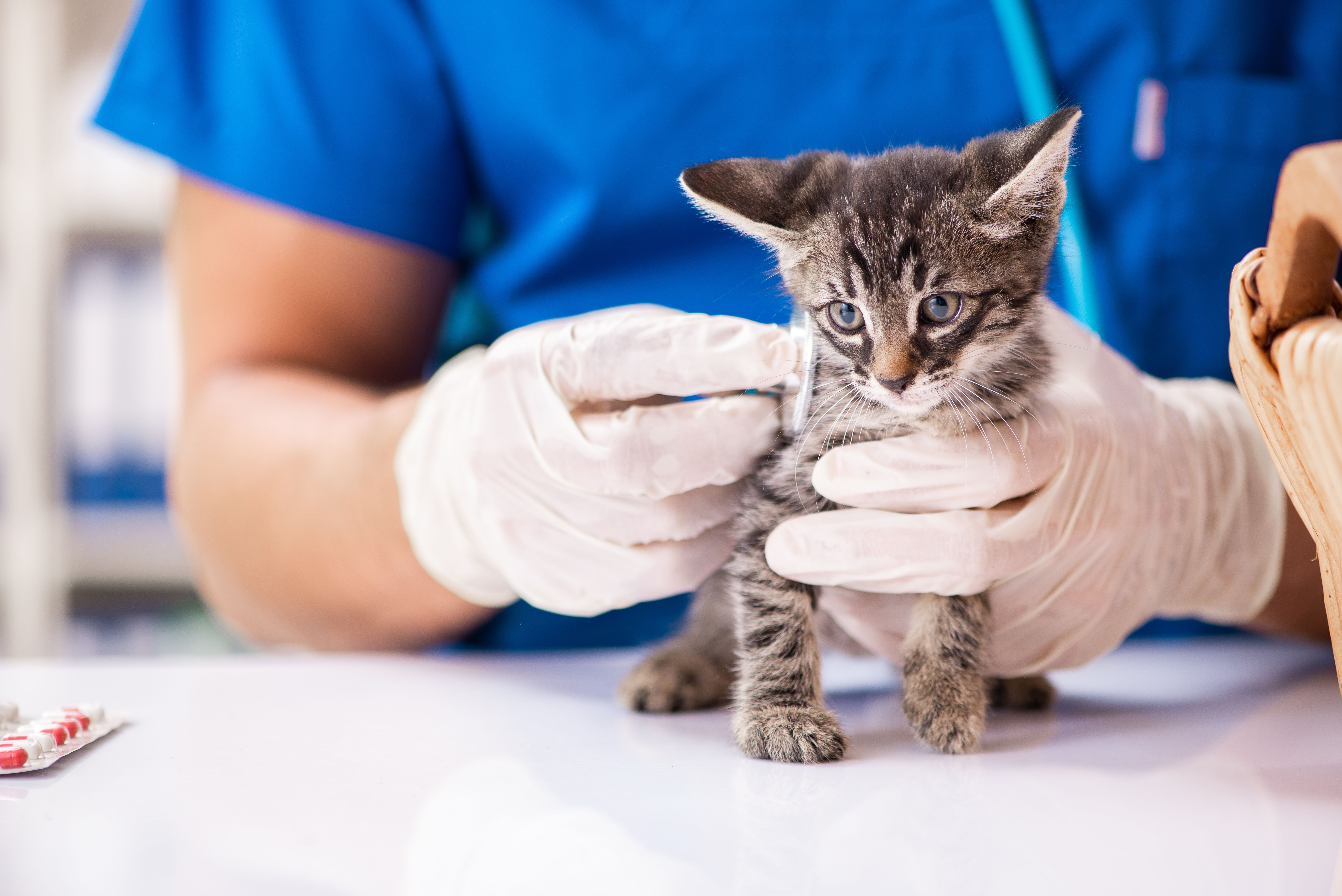
FVRCP an acronym for Feline Viral Rhinotracheitis Calicivirus and Panleukopenia is a vaccine so effective at staving off deadly feline viruses that its considered a core vaccine for all cats.
Fvrcp shots for cats. The FVRCP vaccine protects against diseases that are airborne which means all cats are at risk. The core FVRCP vaccine also prevents rhinotracheitis and calicivirus which are upper respiratory viruses of cats. Kittens should receive their first FVRCP vaccination at 6 to 8 weeks of age followed by three booster shots once a month.
The FVRCP vaccine for cats is generally given to kittens every three to four weeks until they are 16-20 weeks old. Evidence shows that CPV-2a CPV-2b and CPV-2c isolates can. Nobivac Feline 1-HCP has been shown to block the replication of canine parvovirus CPV in cats 1.
Adult cats should receive a booster once every year or two according to your vets recommendation. Same day rabies shot and FVRCP booster Cats 8 replies 4-year-old boy shot by 4-year-old cousin in Detroit Politics and Other Controversies 14 replies Two year-old shot to death by four year-old Politics and Other Controversies 32 replies Artificial knee for a 10 year old cat- would you put your cat through this Cats 6 replies. These are three separate viral infections that are common in cats causing serious andor life-threatening illnesses if unvaccinated kittens or cats are infected.
The FVRCP vaccine is vital since it protects against three feline viruses. Rhinotracheitis is a herpes virus and causes fever sneezing a runny nose and. Whether you adopt your cat as a kitten or as an adult veterinarians recommend the FVRCP cat vaccine and periodic booster shots as part of a cats routine health care plan.
A quality core vaccine shown to be effective for vaccination of healthy cats 9 weeks of age or older against feline rhinotracheitis calici and panleukopenia viruses as well as feline Chlamydophila. Intranasal products can also be used. After a booster at 6 months to one year revaccination is suggested every.
This schedule is recommended in a high risk environment such as a shelter or rescue with many transient cats passing through. Cats can be vaccinated with a single dose at 12 weeks of age. Most vaccine-associated soft tissue sarcomas have been associated with adjuvanted feline leukemia virus and rabies virus vaccines.
